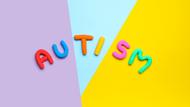Is It Worth Getting an Autism Diagnosis As an Adult?
27th Nov 2024
As more adults become aware of autism spectrum disorder (ASD) and its unique challenges, an increasing number consider whether obtaining an autism diagnosis could benefit them. Many adults might have experienced undiagnosed autism symptoms throughout childhood or noticed struggles with social interactions, sensory input, or repetitive patterns that were never formally addressed. This growing interest raises an essential question: is it worth seeking an autism assessment and diagnosis as an adult?
This article explores the process of diagnosing autism spectrum disorder, its potential benefits for autistic adults, and how an adult diagnosis can impact daily living skills, mental health, and access to support services.
What Is Involved?
An autism diagnosis for adults involves a detailed autism assessment led by health professionals. Traditionally, ASD was diagnosed in early childhood, however, recent research and broader diagnostic criteria allow more adults to seek evaluation and support.
Key Components of an Adult Autism Assessment:
- Initial Screening and Consultation: The first instance of the autism assessment typically begins with a primary health care provider or an allied health professional.
- Diagnostic Evaluation: The evaluation assesses symptoms, personal history, and daily living skills.
- Diagnostic Criteria: The assessment relies on the Diagnostic and Statistical Manual of Mental Disorders (DSM), developed by the American Psychiatric Association, to determine if the individual meets the diagnostic criteria for autism spectrum disorder.

For adults, the diagnostic assessment may involve analyzing how they handle social communication, repetitive behaviours, and sensory input. Observing body language, facial expressions, and social interactions provides health professionals with insights into potential ASD symptoms. Family members might also provide valuable input to help the assessment team understand the individual’s childhood and development.
Autism Spectrum Disorder in Adults
Autism spectrum disorder asd, commonly recognized in early childhood, can also remain undetected until adulthood. This late diagnosis may occur because ASD symptoms can present differently in adults compared to children, with some signs, such as difficulties with social interaction or repetitive patterns, appearing more subtly over time.
Why Many Adults Seek an Autism Diagnosis:
- Better Understanding of Self: Some adults seek diagnosis to understand why they experience challenges with social communication or sensory input. This formal diagnosis can bring clarity, allowing them to make sense of lifelong struggles with certain behaviors or situations.
- Mental Health Benefits: Autism spectrum disorder, when undiagnosed, can contribute to other mental disorders, such as anxiety or depression. A diagnosis may provide a path toward tailored mental health support and evidence-based therapies that address specific ASD symptoms.
- Improved Social Interactions: Knowing that social skills difficulties stem from autism can help adults develop strategies to improve their interactions with others, such as using an online life skills resource or joining a social group.
Having a clear diagnosis can also help autistic adults and their support people understand and navigate social situations more comfortably, recognizing ASD symptoms like repetitive behaviours or sensitivity to sensory input.
The Process and Available Services for Autism Assessment
The autism assessment process for adults typically involves collaboration between various health professionals, including occupational therapists, psychologists, and sometimes family members. These assessments focus on identifying ASD symptoms and understanding how the condition affects the person’s daily life.
1. Initial Assessment and Diagnostic Evaluation
The assessment process begins with an evaluation by a primary health care provider or an allied health professional. During the initial assessment, the professional may ask questions about the person’s childhood development, communication challenges, and social skills.
- Observation of Social and Communication Skills: Health professionals will observe how the person uses body language, facial expressions, and social interactions.
- Screening for Other Mental Disorders: Some adults may have co-occurring mental disorders that require further assessment, so the assessment team ensures a comprehensive diagnostic approach.
- Language and Cognitive Skills: An adult autism assessment often examines the person’s language skills and intellectual abilities, particularly if there are developmental delays or related challenges.
2. Additional Testing and Support Services
In some cases, an autism assessment may involve further assessment to screen for intellectual disability or other mental health conditions. The goal is to ensure a thorough understanding of the individual’s needs and strengths, which can guide tailored interventions or support services. Diagnostic tools, such as the American Psychiatric Association's Diagnostic and Statistical Manual, help in conducting these assessments effectively.
Autistic adults can access various support services to improve their life skills and manage ASD symptoms. Many of these services, such as occupational therapy and educational programs, are available on a fee-paying basis or through the private health system.

Mental Disorders and the Role of Diagnostic and Statistical Manual in Diagnosing ASD
The Diagnostic and Statistical Manual of Mental Disorders (DSM), published by the American Psychiatric Association, outlines the criteria for diagnosing ASD. This manual provides standardized guidelines for health professionals when conducting autism assessments for both children and adults.
Why the DSM Is Essential in Adult Autism Diagnosis:
- Standardized Diagnostic Criteria: The DSM defines the diagnostic criteria for ASD, including social communication challenges, restricted behaviors, and sensory sensitivities, enabling a consistent approach.
- Recognizing Varied Symptoms: Autism symptoms and ASD manifestations vary widely, especially in adults, making it important for health professionals to refer to the DSM to identify ASD accurately.
- Supporting Evidence-Based Interventions: Health professionals can recommend therapies and interventions based on the formal diagnostic criteria in the DSM, which is vital for ensuring effective support.
Autistic adults often benefit from understanding how their ASD symptoms align with the DSM criteria, allowing them to access services and support that enhance their social skills, communication abilities, and everyday life experiences.
Is It Worth Getting an Autism Assessment and Diagnosis as an Adult?
Deciding whether to pursue an autism diagnosis as an adult depends on several personal factors, including the impact of ASD symptoms on daily life and the potential benefits of a formal diagnosis.
Potential Benefits of an Adult Autism Diagnosis:
- Access to Support Services: A diagnosis provides access to targeted support services, such as occupational therapy, social skills training, and support group resources.
- Improved Social Skills: With a clear diagnosis, autistic adults can develop social skills through educational programs, support groups, or life skills resources.
- Mental Health Support: A formal diagnosis can help autistic adults address mental health issues like anxiety or depression, often linked to undiagnosed ASD.
- Enhanced Self-Awareness: Understanding how autism affects their behaviors and social interactions allows autistic individuals to work on strategies to improve their daily interactions.

For those considering an autism assessment, the private health system and other providers offer services that can guide autistic adults through the assessment process. Many adults find that having a formal diagnosis gives them a better understanding of their behaviors and needs, leading to a more fulfilling and balanced life.
Key Takeaway
An autism diagnosis can provide significant value for adults who suspect they might have autism spectrum disorder. This formal diagnosis can open doors to essential support services, evidence-based therapies, and a community of understanding individuals.
Diagnosing autism in adults brings clarity to past challenges and helps them navigate social situations with greater ease. For autistic adults seeking a diagnosis, an autism assessment conducted by a qualified health professional can offer valuable insights and support. Ultimately, the decision to pursue a diagnosis is personal, but for many, it provides a pathway to improved mental health, social skills, and an enriched life experience.



